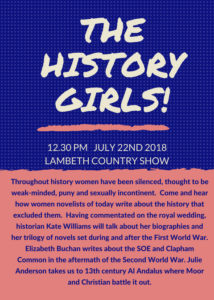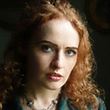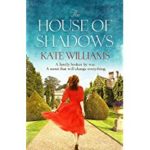 Reading about history has never been more popular. Sales of non-fiction history books have risen by 45% over five years (double the industry average and amounting to over 5m copies a year according to Neilsens ). Historical fiction too is growing and it’s no longer just a ‘genre’, it’s winning literary prizes. Since 2009 six out of nine Man Booker winners and, from 2011, five out of seven Costa prize winners have been historical novels set, wholly or in part, in the past¹.
Reading about history has never been more popular. Sales of non-fiction history books have risen by 45% over five years (double the industry average and amounting to over 5m copies a year according to Neilsens ). Historical fiction too is growing and it’s no longer just a ‘genre’, it’s winning literary prizes. Since 2009 six out of nine Man Booker winners and, from 2011, five out of seven Costa prize winners have been historical novels set, wholly or in part, in the past¹.
It seems that it’s never been a better time to be an historical novelist and many of these are women, who are writing about the lives and experiences of women in the past. In part, I suspect, because history as written so often excludes women. Just as they were absent from the power structures and public discourse which would have enabled them to shape their own destinies when they lived, women, especially ordinary women, have barely featured in the history books. In many instances they were entirely dependant upon male relatives and marriage to give them status, even when wealthy and well-born. There is at least one successful female historical novelist of my acquaintance who sees her writing as a way of allowing formerly ‘hidden’ women to speak, bringing their unique perspectives on their times and their relationship with power to modern readers.
Professor Kate Williams, familiar to many from television appearances, most recently as a commentator on the royal wedding, is Professor of Public Engagement with History at Reading University. She is also the author of both historical biography and historical fiction. Her biographies include England’s Mistress, about Emma Hamilton, which was short-listed for the best biography of 2005–06 and was selected as a Book of the Year in The Times and The Independent; Becoming Queen, about the youthful Queen Victoria, also a Book of the Year in The Spectator and Tatler and Josephine: Desire, Ambition, Napoleon which
Professor of Public Engagement with History at Reading University. She is also the author of both historical biography and historical fiction. Her biographies include England’s Mistress, about Emma Hamilton, which was short-listed for the best biography of 2005–06 and was selected as a Book of the Year in The Times and The Independent; Becoming Queen, about the youthful Queen Victoria, also a Book of the Year in The Spectator and Tatler and Josephine: Desire, Ambition, Napoleon which  examined the life of Josephine de Beauharnais.
examined the life of Josephine de Beauharnais.
Her historical fiction centres on the lives of an Anglo-German family, the de Witts, first as they struggle to survive in England on the home front during WWI in The Storms of War, then, in the second in the series, The Edge of the Fall, as the old certainties fail and members of the younger generation cast about for meaning. The third The House of Shadows is published at the end of July 2018 and she will be discussing it and her other books in The History Girls at the Lambeth Country Show on 22nd July.
Speaking with her will be Elizabeth Buchan, best-selling novelist and fellow founder of the Clapham Book Festival ( indeed the author sessions are billed as the Clapham Book Festival On Tour ). Elizabeth’s many novels focus on the twentieth century female experience, ranging  from between the wars to the modern City milieu. Her latest The New Mrs Clifton is set, post WWII, in Clapham, especially appropriate for the Lambeth Country Show.
from between the wars to the modern City milieu. Her latest The New Mrs Clifton is set, post WWII, in Clapham, especially appropriate for the Lambeth Country Show.
Both tell the stories of women in the past, the constraints and expectations laid upon them and how they negotiate their way through a male dominated world. And I’ll be chipping in too, as we talk about the footprints women leave in history, from the Princess to the widow. Why not come along, if you’re in South London and join in.
¹Wolf Hall, Bring Up the Bodies, The Narrow Road to the Deep North, The Luminaries, A Brief History of Seven Killings, Lincoln in the Bardo and, for the Costa. the two Kate Atkinson, Bring Up the Bodies, Pure, Days Without End.
For more about writing history try Seduced by History History Writing Authenticity and verisimilitude Bring Up the Bodies


 RSS – Posts
RSS – Posts